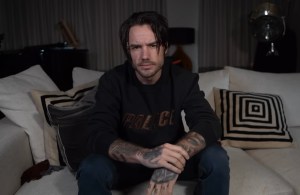Naomi Judd’s death by suicide has triggered a discussion about such information being public knowledge. The country music icon died at the age of 76, with her daughter, actress Ashley Judd, later revealing that s shotgun was involved in her mother taking her life. But the family has fought to keep certain details private. The Judd family filed suit after Naomi’s April 2022 death against Williamson County in Tennessee to prevent them from releasing information connected to the death of Naomi. They later took legal action against journalists who filed open records requests.
In the aftermath, Ashley penned a heartbreaking account of what she says she and her family have experienced since that fateful day to the New York Times. “And now that I know from bitter experience the pain inflicted on families that have had a loved one die by suicide, I intend to make the subsequent invasion of privacy – the deceased person’s privacy and the family’s privacy – a personal as well as a legal cause,” she wrote in part.
Videos by PopCulture.com
Judd also revealed that investigators recorded interviews with her while she was still in a state of shock over her mother’s death. She says they made her feel as if she was a suspect in their investigation.
Now, legislation sponsored by Senate Majority Leader Jack Johnson would close public records in death investigations, with an example of Naomi’s. The move facing fierce opposition from open records advocates.
Johnson, a Franklin Republican, filed Senate Bill 9 in advance of the 113th General Assembly per Tennessee Lookout. If passed, it would conceal law enforcement investigative reports, 911 recordings, photographs, and any other records connected to a death if law enforcement agencies determine it was not the result of a crime. The bill would also make confidential the body camera footage of the inside of a home-recorded in the investigation.
The Tennessee Coalition for Open Government is lobbying against the bill. They believe it could further cripple the public’s right to have critical information about law enforcement investigations and cover up crimes.





